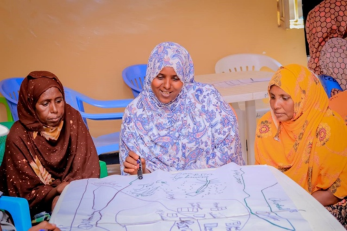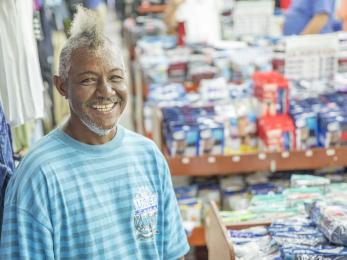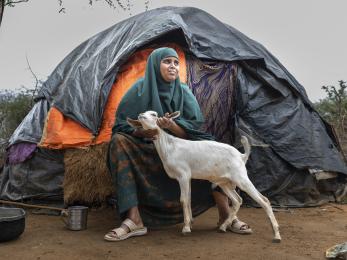Transforming Livelihoods in the Horn of Africa’s Livestock Corridors

The Regional Livestock Program (RLP), a 12-year initiative, with the first phase running between 2023 -2027 is driving meaningful change across five trade corridors in Ethiopia, Kenya, and Somalia, targeting 540,000 pastoralists and market actors.
In 2024, the program made strong headway: 23 Rangeland Management Committees co-developed land-use plans, leading to the rehabilitation of 713 hectares with active local participation. Water access expanded through solar-powered systems, benefiting 755 households and 88,900 livestock. Over 18,000 livestock producers accessed veterinary services through strengthened Community Animal Health Worker–Private Veterinary Pharmacy (CAHW–PVP) models, reaching remote areas. These efforts signal a shift toward localized, climate-smart service delivery models that are responsive and community-owned.
Empowering Women, Strengthening Markets, and Shaping Policy
Gender equity is gaining momentum. RLP mobilized 117 women traders and 33 fodder retailers into structured groups and used tools like the Women’s Empowerment in Livestock Index (WELI) to identify and act on barriers to women’s economic inclusion. Encouragingly, women are now preparing to lead feed businesses, milk collection cooperatives, and financial platforms. On the market side, trader associations began influencing taxation and mobility policies, while co-investment with private actors expanded veterinary and water services. Regionally, RLP helped harmonize cross-border trade and disease protocols, contributed to the African Continental Free Trade Area (AfCFTA) livestock strategy, and supported the launch of the Camel Centre of Excellence in Kenya, positioning the region for long-term institutional growth.
Looking Ahead: Scaling System Shifts and Community Leadership
2024 marked a turning point. Communities co-financed rangeland rehabilitation, showing readiness to move from dependency to ownership. Governance is becoming more inclusive, as customary and formal leaders jointly enforce bylaws. Disaster preparedness is now rooted in local practice, replacing harmful coping strategies like charcoal burning with early warning systems. Building on this momentum, RLP will scale up public–private partnerships, expand community resilience frameworks, and open new market ventures in camel milk, meat, and feed.
With systems shifting and behaviors evolving, the Horn of Africa is poised for a livestock sector transformation, and this digest offers a front-row seat to how it’s unfolding.

